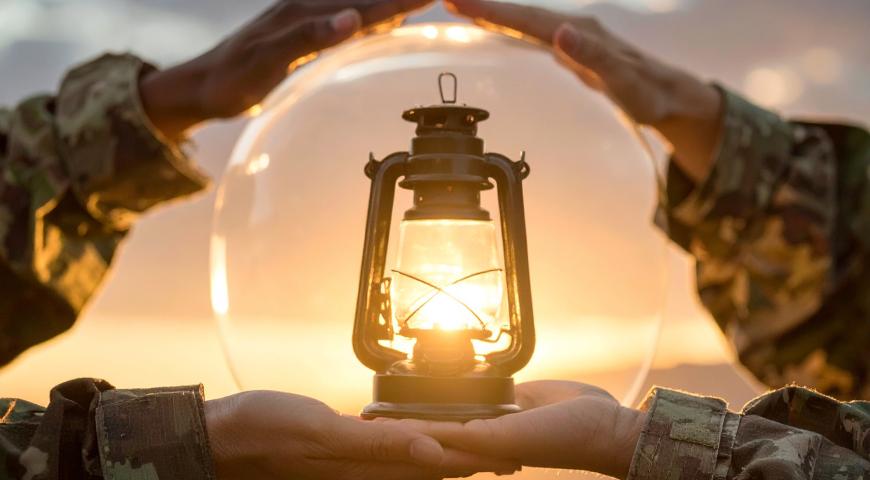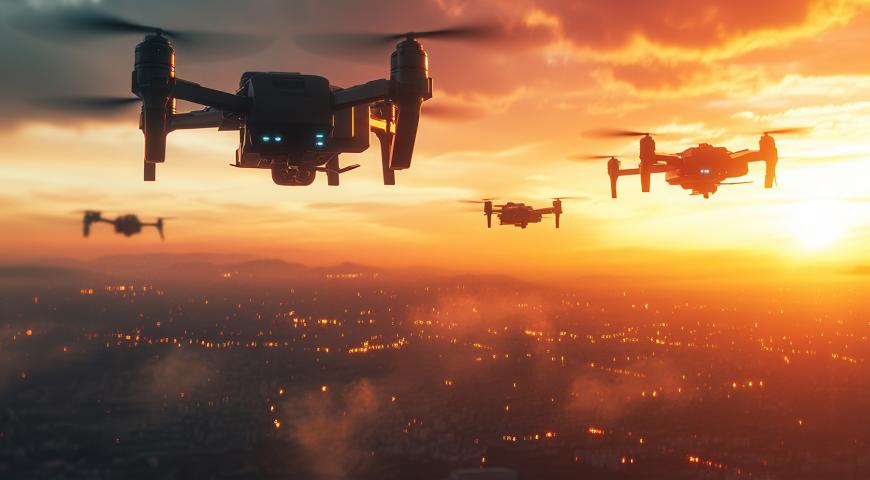(Note: This paper is the opinion of the author and does not represent the views of Defence nor the Australian Army. I pose this paper to invoke discussion on the topic).
Research, development, manufacture and selling of military materiel, in particular systems that are designed to deliver kinetic effects and bring harm to others, has always been a contentious issue for members of the public of Western democratic nations - especially during long periods of perceived peace.
The recent ABC News article,“Fighting Yemen’s dirty war, an Arab military is buying a weapons system made in Canberra” [1] identifies a number of ethical challenges for Boards and the CEOs of Defence Industry, in particular, Australian companies. Further, this article and a follow on article released on 31 Jul 19 by the ABC, "Remote Weapons System not used in the Yemen war, Australian defence company EOS says," [2] poses questions on the export licence approval process for military equipment which is tightly controlled by the Australian Government departments of Defence and Foreign Affairs and Trade.
Is it actually feasible to expect that a nation that acquires Defence hardware or services from Australian will never use these to conduct war crimes or in conflicts that the people of Australia do not support? Further, should we expect that Boards and CEOs to place additional restrictions on the selling of materiel in order to gain this assurance? This paper will discuss the feasibility of Boards and CEOs to actually seek such assurances or to place additional restrictions or limitations on those controls enforced by the Government of Australia.
The military is one of the four instruments of National Power (the others being Diplomatic, Economic and Informational), or tools that governments have to pursue strategic objectives in the name of the national interest. As Carl von Clausewitz in his book ‘On War’ states, “war is the continuation of politics by other means.” [3] To protect a nation's interests, requires a military that is equipped, and can be sustained, with modern weapon systems, ammunition, vehicles and other platforms. At the end of WW2, Australia undertook significant demilitarisation which arguably contributed to the loss of most of its sovereign Defence industry capability. The reasons for the loss of these industries are many, from skilled workforce shortages, costs of wages and poor economic viability of manufacturing within Australia being some of the key contributors in recent years. We don't have to look too far back in time to when we saw the demise of vehicle manufacturing with the closures of Ford, Holden and Toyota in South Australia and Victoria.
As a result, Australia in more recent times has had to rely heavily on acquisitions of military hardware from the US, and other coalition nations, in particular, those within the North Atlantic Treaty Organisation (NATO). The ongoing feasibility of relying on US and other nations for the supply of our defence materiel is one that we can not always take for granted. Additionally, if we can manufacture military materiel here in Australia, it brings with it the benefits of employment and taxes to fund other high priority domestic demands, for example, health, education and welfare.
In April 2018, Defence released the Defence Industry Capability Plan. The plan acknowledges that as Australia builds its defence capability, it must also grow our defence industrial capability. The plan advises that: "By 2028, Australia will require a larger, more capable and prepared Australian defence industry that has the resident skills, expertise, technology, intellectual property and infrastructure to enable the conduct of ADF operations and to support the acquisition, operation and sustainment of future defence capability; and provide the national support base for Defence to meet current needs and to surge if Australia’s strategic circumstances require it." [4]
For the Australian Defence Industry to respond and to be able to meet the current and future requirements of the Australian Defence Force (ADF), it needs to find ways to be economically viable. Unlike the US and China, the ADF is not large enough to sustain by its own a large defence industry base. One such way for it to be viable is for the industry to also export its products and services to overseas customers, i.e. other nations’ militaries. Australia in 2016 was ranked 20th in the world for Defence exports, but on 29 January 2018, the then Prime Minister, Malcolm Turnbull outlined a new defence export strategy to make Australia one of the top 10 weapons exporters in the world within 10 years. [5] This is a very ambitious goal and arguably is driven by growing employment opportunities for Australia and to re-establish a strong sovereign industry base. However, various international treaties, alliances and sanctions will continue to prevent or restrict the markets for Australian Industry selling military materiel. Additionally, Australia has a legislative framework, cascading from the Customs Act of 1901 and the Defence Trade Controls Act of 2012 that ensures that the Government has the ability to tightly manage the nation's exports of controlled goods, including weapon systems, ammunition, military hardware, services and technology. [6]
In November 2012, the Australian Government strengthened Australia's export control framework with an amendment to the Customs Act 1901 (section 112BA) to include the export of goods and technology that were not controlled but could support or contribute to an adverse military end-use that was not in Australia’s interest. [7] The purpose of this legislative framework on export control is not to impede trade, innovation, research or international collaboration, but rather to ensure decisions made by industry accord with Australia's strategic, security and foreign policy objectives, and our international obligations.
Based on open source 2018 data, the nations that have the greatest military spends are the US (US$648.8B), China (US$250B) and Saudi Arabia (US 67.6B). [8] Of these three, the Australian Defence Industry does supply to the US and Saudi Arabia (as identified in the article in question). How a nation-state then employs or uses these weapon systems, some that will be acquired from Australia, is a decision that rests with its leadership. Political and military leaders may argue that the ends (political objective) often justify the means (the use and how it employs its military), no matter the cost. Consequently, in a rules-based global order, the use of the military and how it is employed is a political decision by the nation's government. Therefore, a nation’s leaders are and should be held accountable for the actions of their military in seeking to achieve the political objective.
However, the article questions the selling of weapon systems by Electro Optics Systems (EOS) in Australia to Saudi Arabia and the UAE as a result of accusations of war crimes in Yemen. One could argue that any nation, including Australia, is always only one incident away from failing 'Jus in Bello' - Latin for the standards and actions during a war that are just and fair - and committing war crimes. It takes only one questionable action by even the noblest of generals and their soldiers, for it to potentially be assessed by the International Criminal Court in the Hague as to have committed a war crime.
I am by no means defending or suggesting that the allegations of war crimes in Yemen should not be investigated. Rather I pose that it will be very hard for any company to sell military materiel to any nation, including its own, and have 100 per cent assurance that their products will never be used in an unjust means or criminal act.
If there are ethical questions with the sale and export of military equipment to other nation-states as there is a potential that they could be used against the innocent or non-combatants, then should we also question the domestic sale of ammunition and the export of it to the US? The US imports from Australia large quantities of small arms ammunition, not for their military, rather for their hobby shooters. Should we then expect ammunition manufacturers in Australia to cease the export of ammunition to the US in light of the number of mass shootings of civilians in their society in recent years?
The business of manufacturing and selling military materiel poses significant ethical dilemmas for a company board to consider. However, we can’t lose sight of the essential need for sovereign defence industry capability in Australia. The Australian government, our allies and the United Nations pose tight controls on the exporting of materiel to those nations that do not comply with a rules-based global order. If boards of Australian defence industry companies were to impose additional limitations or restrictions on who their product can be exported to, then it is very likely that it will add significant pressure on the economic viability for these businesses to maintain manufacturing capability in Australia. Not only could this contribute to the potential loss of sovereign industry capability but also a flow-on effect on unemployment levels and reduced government budgets needed to fund domestic priorities like health, education and welfare.
[1] Dylan Welch, Fighting Yemen’s dirty war, an Arab military is buying a weapons system made in Canberra, ABC Investigations, ABC News, dated 25 Jul 19
[2] Dylan Welch, Remote Weapons System not used in the Yemen war, Australian defence company EOS says, ABC News, dated 31 Jul 19
[3] Clausewitz, Carl von (1984) [1832]. Howard, Michael; Paret, Peter (eds.). On War [Vom Krieg] (Indexed ed.). New Jersey: Princeton University Press. p. 87
[4] Commonwealth of Australia, Department of Defence, Strategic Policy and Intelligence Group accessed on 30 Jul 19
[5] Defence Connect, Defence Export Strategy unveiled, Key Enablers, dated 29 Jan 19 accessed 30 Jul 19
Social Mastery
Please let us know if you have discovered an issue with the content on this page.
Comments
Start the conversation by sharing your thoughts! Please login to comment. If you don't yet have an account registration is quick and easy.




